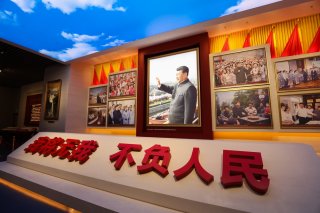The Clash of Xivilizations?
China's latest messaging tool, the Global Civilization Initiative, is set to take the CCP's information and influence apparatus worldwide.
Outside of co-opting national politicians to advance pro-China narratives and policies in their home countries, CCP leadership statements reveal an intent to recruit state and local level officials for the same purpose. This intent is made evident by recent remarks delivered by the President of the Chinese People’s Association for Friendship with Foreign Countries (CPAFFC)—a United Front organization that, according to the State Department, “directly and malignly influence[s] state and local leaders to promote the PRC’s global agenda.” Consistent with State’s characterization, President Lin Songtian claimed that the GCI would deploy city-to-city diplomacy and public diplomacy with the aim of “empathizing people, convincing people with reason, and conveying truth with words” to “enhance the international community’s awareness and understanding of our country’s development achievements, development path, political system, and values.”
That CPAFFC aims to flood local and state audiences with CCP propaganda is evident in this statement; left unsaid, however, is the fact that the organization uses this subnational diplomacy to recruit local officials to advocate for China-friendly policies that their national government may be unwilling to implement. CPAFCC also exploits the implicit threat of revoking bilateral investment deals between Chinese and foreign cities to pressure local governments into endorsing the CCP’s illegitimate territorial claims, as occurred when a sister-city agreement between a Chinese and an American city stipulated that the latter could not have any association with Taiwan for the partnership to go forward. Even when purportedly promoting Chinese culture, CPAFFC will likely create networks of subnational influence to move the targeted country’s domestic politics towards China’s interests.
Spreading “Xivilization”
Despite the above analysis, the state-owned Global Times maintains that the GCI will forge cooperative relationships with other countries, rebutting the American notion of an inevitable “clash of civilizations” between the West and the rest. However, there are no clearer signals of the CCP’s strategic intentions than the official statements and actions of its leaders. Their directives reveal that they will use subversive methods abroad to shape how countries evaluate the legitimacy of the party’s foreign policy and domestic rule. In deploying influence and information operations globally, the CCP is waging the very cultural warfare it purports to reject in order to best the West in global moral leadership.
Andrew Weaver is a sophomore at Columbia University studying Political Science and Chinese. He has worked with the U.S. government and think tanks on research projects pertaining to China’s foreign policy. The views expressed here are his own and do not reflect the opinions or beliefs of the organizations with which he is affiliated.
Image: Shutterstock.

